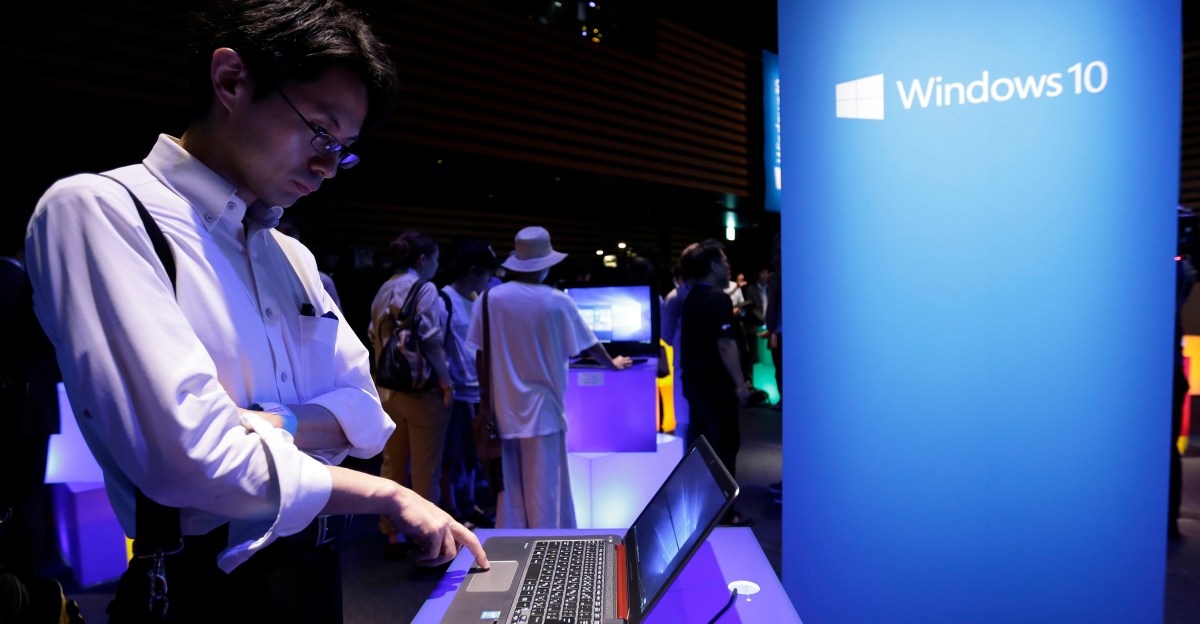Microsoft
be left behind: The transition to Windows 11

Microsoft is discontinuing support for Windows 10 today, a move that comes after the operating system’s release on July 29th, 2015. This decision means that Microsoft will no longer provide software updates, technical assistance, or security fixes for Windows 10 through Windows Update. Despite the popularity of Windows 11, which surpassed Windows 10 in terms of usage a few months ago, Microsoft is moving forward with its plan to end support for its predecessor.
Last year, there was uncertainty about whether Microsoft would actually follow through with ending support for Windows 10 on time. The company reopened beta testing for Windows 10 to introduce new features and improvements, leading some users to hope for a change in Microsoft’s decision or a reduction in the system requirements for Windows 11. However, neither of these scenarios materialized.
While around 40% of Windows users are currently running Windows 10, a significant portion of them are businesses that can pay for up to three years of additional support. Additionally, approximately 30% of PC gamers on Steam are still using Windows 10. The inability to upgrade to Windows 11 is a significant factor for many users, as the new operating system has stricter hardware requirements, such as Intel 8th Gen Coffee Lake or Zen 2 CPUs and a Trusted Platform Module (TPM).
In response to the widespread use of Windows 10, Microsoft is offering consumers the option to enable extended security updates for free, providing an additional year of security fixes. This move reflects Microsoft’s acknowledgment of Windows 10’s continued popularity and the need to ensure that users receive essential security patches.
The upcoming release of Windows 12, or whatever Microsoft’s next operating system will be called, is also a factor contributing to the persistence of Windows 10 users. Many users may be hesitant to upgrade now if a new OS with additional features and potentially higher hardware requirements is on the horizon.
Windows 10 was well-received upon its release and addressed many of the shortcomings of its predecessor, Windows 8. The operating system benefited from user feedback and became a favorite among consumers. In contrast, Windows 11 has faced controversies, such as strict hardware requirements and attempts by Microsoft to promote its own products like Edge and Bing.
Microsoft’s integration of AI features into Windows 11, particularly with Copilot Plus PCs, has raised concerns among users. Features like Copilot Vision and Recall, which capture user activities and potentially raise privacy issues, have not been universally embraced.
Looking ahead, Microsoft’s focus on AI in Windows 11 raises questions about the direction of the operating system. While AI-powered features can be beneficial, they must be genuinely useful to users. The success of Windows 10 serves as a reminder that listening to user feedback and getting the basics right can lead to enduring popularity.
As Windows 10 support comes to an end, it will be interesting to see how Microsoft navigates the transition to its next operating system. The company’s approach to AI features, user privacy, and hardware requirements will likely shape the future of Windows and influence user adoption.
-

 Video Games2 days ago
Video Games2 days agoTekken 8: Rise of the Shadows
-

 Amazon2 days ago
Amazon2 days agoNeil Young Takes a Stand: Pulling Music from Amazon in Protest of Jeff Bezos’ Support for Trump
-

 Video Games1 day ago
Video Games1 day agoGoku Takes on the Dragon Ball FighterZ Arena
-

 Tech News2 days ago
Tech News2 days agoSamsung Galaxy UI 8: Embracing the Big Free AI Upgrade
-

 Security2 days ago
Security2 days agoCritical Vulnerability Exposed: Oracle EBS Targeted in Recent Cyber Attacks by Cl0p Hackers
-

 Microsoft2 days ago
Microsoft2 days agoEnhanced Copilot Features: Creating Office Documents and Gmail Integration
-

 Microsoft2 days ago
Microsoft2 days agoMicrosoft Launches Free Copilot Tools for Washington State Schools: Navigating the AI Learning Debate
-

 Apple2 days ago
Apple2 days agoExploring the Dystopian Realms of Pluribus: An Apple Original Series Trailer


























